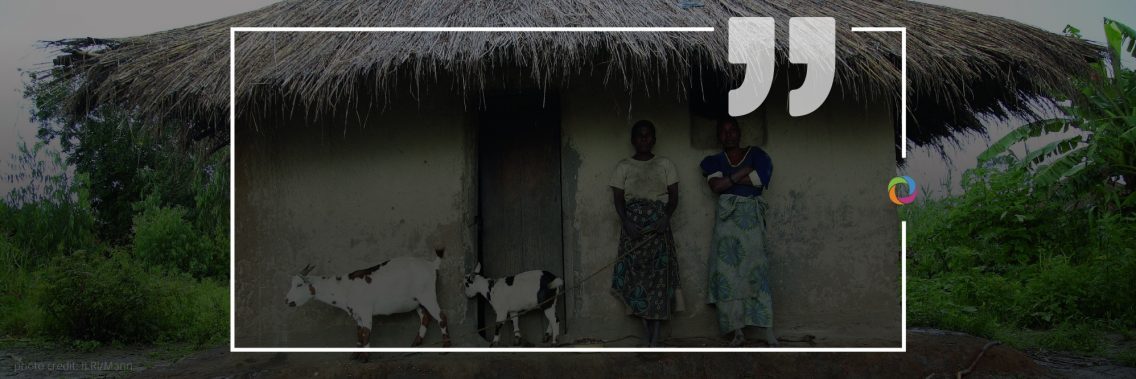They say that if all the money in the world was shared between each individual thus making everyone equal, in time, those who were previously rich would become rich again while those who were poor would return to their original situation too. Is it the same case for poor countries as well? Researchers say that poor states are poor because their economies fail to grow fast enough. Among other causes are low levels of education, poor water quality, and weak health systems. The economies of the least developed states shrink too often and only a few have the capacity to reduce the incidences of this, economists say. We discussed the topic with some experts. Check their answers
Key Takeaways
- One root cause of poverty is the absence of a business enabling. On the other hand, developed countries put in place structures and mechanisms to enable businesses to flourish
- Among other reasons for poor countries remaining poor is instability in both the political and social arenas
- In order for poor countries to become rich, there are two interconnected issues: GDP growth and poverty reduction (equality)
- Governments need to develop policies that both stimulate overall economic growth and reduce inequality. Unfortunately, to some extent, these policies are mutually exclusive, especially for severely resource-constrained states
- To benefit from increased trade, governments need to focus on human capital which requires investment in education and health and productive enterprises whilst minimizing the environmental impact of a growing economy
DevelopmentAid: Why do rich countries become richer and poor countries remain poor?

“How we define ‘rich’ and ‘poor’ is determined by what we value, and it is up to individuals and countries to determine what makes them feel rich. Saying that GDP is a commonly used shorthand to rank countries and express their perceived affluence and development status although many people including the World Bank would caution against this. One major shortcoming of national GDP/GNI statistics is that they do not show the distribution of the wealth across the citizens of the country, and there has been an increase in inequality over recent decades. This inequality is important because it shows that groups of people are increasingly marginalized and unable to benefit from economic growth which can lead to social unrest. With that caveat, I would say that everyone I have met wants to see material improvements in their lives and in the lives of their children. The relative affluence of countries is influenced by several factors including natural endowments, human capital, the legacy of their history, existing trading networks and types of governance to name a few.”

“This is a complex question but if I had to pick just one key factor it would be the presence of a business enabling environment. Developed countries get developed because they put in place structures and mechanisms for businesses to flourish. Those businesses create jobs and incomes, contribute tax revenue and provide needed products and services. Rich country governments ensure essential infrastructure and enterprise support are in place and regulations assert control without bureaucracy. Poor countries usually suffer from ineffective governance, weak and unenforced regulatory structures, and corruption. There is little support for small businesses, so the informal sector dominates and governments miss out on tax revenue.”

“Many countries in the Global South face great challenges in ending extreme poverty and achieving sustained economic growth. While each country has its unique context and overriding development constraints, there are similarities in the development problems they face. Experience shows that poor management of natural resources, substandard governance, and under-investment in education and human resources are associated with slow growth rates and low real per capita income. Countries of the Global North, on the other hand, have escaped poverty by addressing those issues and increasing the rate of economic growth through the promotion of free and open markets as well as international trade.”

“There are various factors that stagnate countries’ economic growth or sometimes weaken their economic potential and prosperity. One of the reasons is instability [lack of peace] on both the political and social scenes. Commitment could be another reason, commitment to defend and promote sources of wealth comes from economic intelligence which is gained through appropriate education and training. Rich nations happen to be doing the opposite of the above. In addition, some of the rich nations had the advantage of being able to influence economic growth or the slow dwindling of the poor nations. In contrast, there are some nations that became very rich in a relatively very short period – probably because they adhered to What Works for Them – and pursued it.”
DevelopmentAid: What should poor countries do to become rich and reduce poverty?

“There are two interconnected issues, GDP growth and poverty reduction (equality). The belief in the ‘trickle-down effect’ where GDP growth benefits everyone in a society has been somewhat discredited and so I would argue that governments need to develop policies that both stimulate overall economic growth and reduce inequality. Unfortunately, to some extent, these policies are mutually exclusive, especially for severely resource-constrained governments. The globalized and highly connected world we live in provides both opportunities and challenges for governments. For example, according to the World Bank, global value chains have made a significant impact on poverty reduction at the global level and have also facilitated technology transfer between countries, but there are always losers as well as winners, for example when jobs become offshored. I would propose that countries need to engage in trade, make it easier to do business, reduce tariffs and other barriers, for example via international trade agreements such as the Africa Continental Free Trade Agreement. In order to benefit from increased trade, governments need to increase human capital which requires investment in education and health and encourage investment in productive enterprises whilst minimising the environmental impact of a growing economy.”

“The question of what poor countries should do is simple yet difficult. It takes competent, dedicated leaders to develop economies and unless they are available and elected little can be accomplished. There is an oft-cited example of Singapore and Jamaica. Both are island states of similar size and, in the 1960s, had similar GDPs. Over the years, with discipline, good planning, and proper execution Singapore has become an economic powerhouse while Jamaica has developed much more slowly. The growth of Rwanda is another example of the importance of solid leadership. Change and development begin at the top.”

“Scholars have proposed numerous explanations to study and prioritize the factors that increase economic wealth and prosperity including promoting investments and free trade, advancing healthcare, fostering good governance and fighting corruption, sustainably managing resources, and strengthening the quality of education. I think that high-quality and equitable education as a fundamental factor for development tops the list. When countries educate individuals and societies, they are essentially making future investments with zero loss risks. As more individuals become educated, more work requiring literacy and innovative solutions can be accomplished with higher efficiency thereby contributing to economic growth. Additionally, capacity building is key to strengthening societies by overcoming ‘soft’ barriers to inclusive development such as social exclusion and gender inequality.”
See also: The widening human development gap between rich and poor states | Experts’ Opinions
Check out more than 200 job opportunities related to poverty reduction and finance sectors here.

